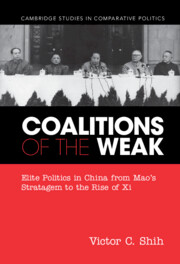
National Endowment for Democracy (NED)
China’s Belt and Road Initiative promised to establish a new network of economic arteries through which Beijing could expand its political influence and malign sharp power. However…..
Across much of the developing world, China finds itself in an uncomfortable position, a geopolitical giant that now holds significant sway over the financial futures of many nations but is also owed huge sums of money that may never be repaid in full, the NYT’s Keith Bradsher writes:
- When Suriname couldn’t make its debt payments, a Chinese state bank seized the money from one of the South American country’s accounts.
- As Pakistan has struggled to cope with a devastating flood that has inundated a third of the country, its loan repayments to China have been rising fast.
- When Kenyans and Angolans went to the polls in presidential elections in August, the countries’ Chinese loans, and how to repay them, were a hot-button political issue.
 China and Russia may be failing to generate soft power, but open societies shouldn’t be complacent, NED’s Christopher Walker writes for Foreign Policy. They still exert malign sharp power by, for example, training officials from developing countries “on how to censor the internet, control civil society, and build a robust single-party state” (as Elizabeth Economy observes).
China and Russia may be failing to generate soft power, but open societies shouldn’t be complacent, NED’s Christopher Walker writes for Foreign Policy. They still exert malign sharp power by, for example, training officials from developing countries “on how to censor the internet, control civil society, and build a robust single-party state” (as Elizabeth Economy observes).
Central to Xi’s mode of rule is renewed enforcement of the ideological “mass line” within the party — shorthand for following directions set by the top leadership. His eponymous philosophy, Xi Jinping Thought on Socialism with Chinese Characteristics for a New Era, is taught in schools and pored over by economic planners, People’s Liberation Army generals and diplomats, the Washington Post’s Christian Shepherd and Eva Dou report.
“Ideological control is not a supplement, but arguably the foundation of political control, because if an autocrat can control people’s ideas and beliefs, there would be no need for coercion,” said Yuen Yuen Ang, a professor of politics at the University of Michigan.
However much they insist on their infallibility, Xi and other authoritarians who seek a third, fourth, or fifth term in office are effectively confessing to at least one enormous failure, writes Tyler Roylance, a Staff Editor at Freedom House: by centralizing authority, gutting independent institutions, and eliminating potential successors, they have built regimes that cannot survive without them, raising the risk of catastrophic instability when they inevitably leave the scene. Yet as long as they prioritize personal self-interest over both elite and national interest and reject checks on their own misjudgment, their regimes may not be able to survive with them, either.
 Many Chinese intellectuals, writers, artists, and filmmakers, as well as a fair number of private entrepreneurs, do not like Xi, adds CFR’s Ian Johnson. They resent his crackdown on artistic freedom, his desire to whitewash history, and his favoring state-owned enterprises over the private sector. But they have little voice in the political sphere.
Many Chinese intellectuals, writers, artists, and filmmakers, as well as a fair number of private entrepreneurs, do not like Xi, adds CFR’s Ian Johnson. They resent his crackdown on artistic freedom, his desire to whitewash history, and his favoring state-owned enterprises over the private sector. But they have little voice in the political sphere.
How Chinese leaders are selected is the focus of two books by political scientists who use newly opened archives or data-driven research to reinterpret recent events, better understand Xi’s China, and imagine a possible post-Xi future, Johnson writes for the New York Review of Books:
- In Coalitions of the Weak, Victor C. Shih of the University of California at San Diego looks at how top leaders from Mao to Deng to Xi have eliminated their peers and surrounded themselves with weaker leaders who help them run the country. This ensures that the strongman remains unchallenged, but it doesn’t bode well for policy in his lifetime or for his legacy.
- In Prestige, Manipulation, and Coercion, Joseph Torigian of American University is less interested in coalitions than the mechanics of transfers. Challenging conventional analyses of how authoritarian leaders are chosen, he argues that factors such as ideology and patronage matter less than brass-knuckle tactics.
China: Back to Authoritarianism https://t.co/1KJzim4oHg via @nybooks
— Democracy Digest (@demdigest) October 6, 2022







